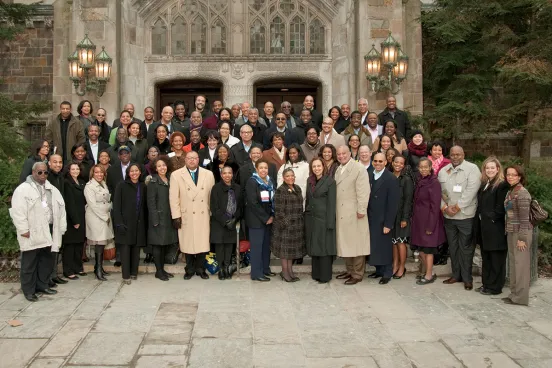
Joseph Sax, a pioneer of environmental law, died March 9, 2014, at the age of 78.
He was a professor of law at Michigan from 1966 to 1986. Although he later joined the faculty at the University of California, Berkeley, he said of Michigan, “It is the place where I grew and prospered professionally, and it shall always be my intellectual home.”
At Michigan, Sax wrote a bill that became the Michigan Environmental Protection Act of 1970, legislation widely described as “seminal” that inspired similar laws nationwide. The basis of Sax’s argument—which stemmed from environmentalists fighting an irrigation project that would be harmful to wetlands—was the notion of the public trust. Dating back to the Roman Empire, preserving water resources for public use was established doctrine. In drafting his bill, Sax said the public had the right to sue to protect any of Michigan’s natural resources.
“Sax believed that administrative agencies, with all good intentions, often became as much an obstacle to environmental protection as polluters themselves,” wrote historian James Tobin in a 2012 Law Quadrangle story.
“The best place to fight for a clean country was the courtroom, [Sax] wrote, ‘not because judges are thought wiser or because the processes of litigation are particularly rapid, but because the court preeminently is a forum where the individual citizen or community group can obtain a hearing on equal terms with the highly organized and experienced interests that have learned so skillfully to manipulate legislative and administrative institutions. If we are to save the environment, rather than merely revere it, the citizen can no longer be put off with the easy advice to ‘go get a statute enacted’ or ‘wait until election day,’ while the bulldozer or chain saw stands ready to move.’”
From 1997 to 2008, the doctrine was used in nearly 300 federal and state decisions, according to The New York Times, and it has influenced environmental law worldwide. A 2012 list of the 100 most cited law review articles of all time revealed two Sax publications.
“[Joe] combined outstanding scholarship with value-inspired activism that provided a role model for younger colleagues and shaped the careers of many of his students,” says Richard Lempert, the Eric Stein Distinguished University Professor of Law and Sociology Emeritus. “His importance to the thennascent environmental law movement cannot be overstated.”
Sax graduated magna cum laude from Harvard and returned to his hometown to attend the University of Chicago Law School. He began his academic career as a law professor at the University of Colorado, where he taught mining, water, and oil and gas law. There he began grappling with questions of natural resources law, understanding that many of his students would go on to advise companies that were mining resources from the natural areas that were dear to him.
His Michigan colleagues say that Sax’s international stature did not diminish his approachability as a colleague nor his effectiveness as a mentor. “In 1976, I took the manuscript of my first book to him,” recalls Joseph Vining, the Harry Burns Hutchins Collegiate Professor of Law Emeritus. “Unbeknownst to me, [Joe] was just 40. I thought him a major figure and quite senior, and did not really expect him to take it on. But he did. Fortunately, I had the chance to tell him more than once how critically important he was to the whole course of my life.”
In 1983, Sax became the youngest U-M faculty member ever appointed Distinguished University Professor, an honor that allowed him to choose the person for whom the chair would be named. Sax chose Philip Hart, ’37, who, as a U.S. senator from Michigan, led efforts to have Sleeping Bear Dunes and Pictured Rocks designated as national lakeshores. In recognition of his exceptional scholarship and teaching, the Law School in 2009 established the Joseph L. Sax Collegiate Professorship, currently held by Nina Mendelson.
In addition, a group of alumni and friends created the Joseph L. Sax Scholarship, given annually to a student pursuing a joint degree in the Law School and U-M’s School of Natural Resources and Environment.
Sax’s wife of 55 years, Eleanor, died in December 2013. He is survived by his daughters, Katherine Dennett, Amber Rosen, and Valerie Sax, and four granddaughters.







